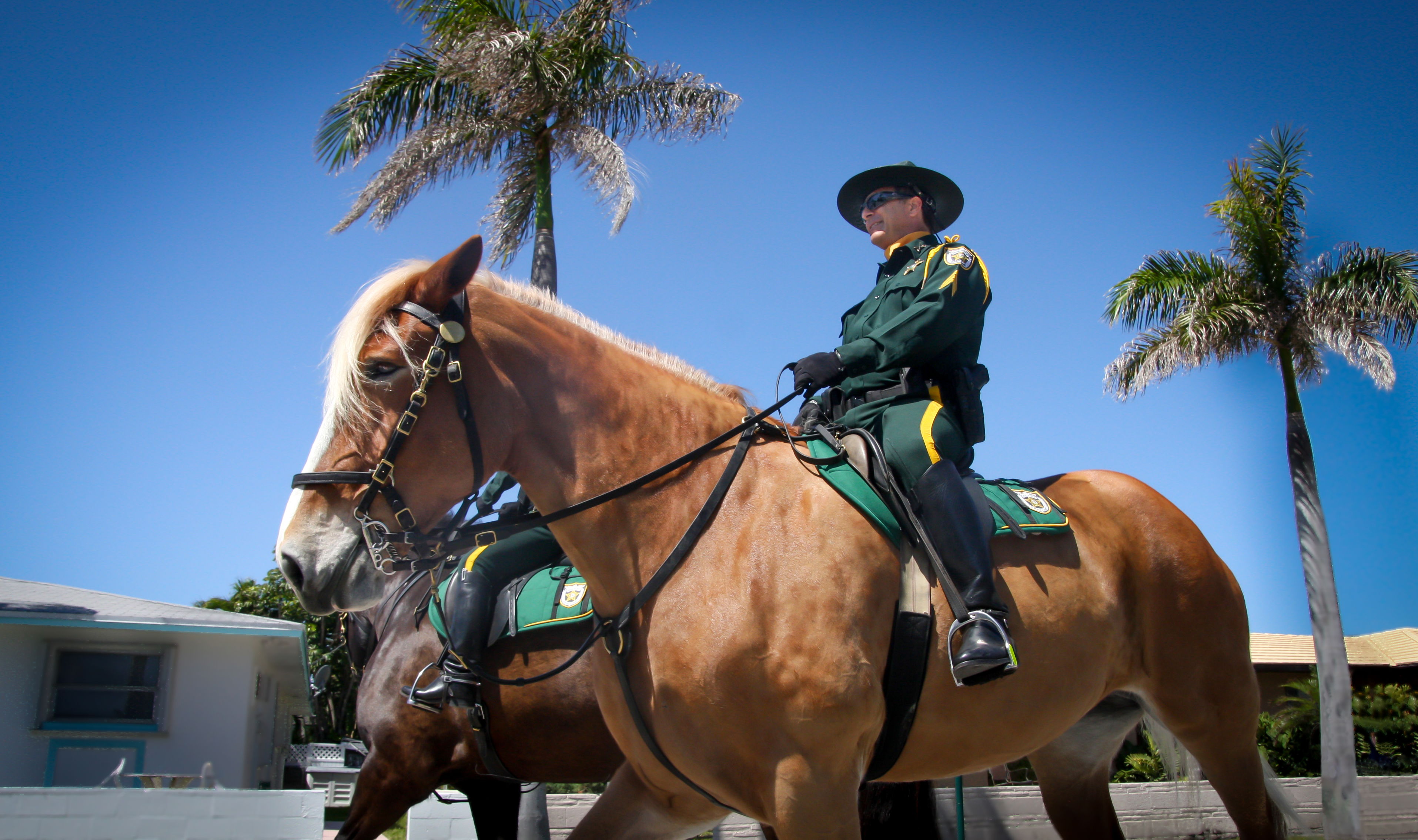HOW TO PROTECT YOUR HORSES AND PREVENT CRIME
- Make a police report of stolen horses, missing tack equipment, cut fences or gate locks, criminal mischief, etc.
- Understand that thieves involved in equine crime know what they are doing.
- Be vigilant at all times and keep an eye open for strangers
- Get to know the neighboring businesses and neighbors; exchange emergency contact information.
- Keep log of visitors. Example: Name of visitor’s organization, person’s name, vehicle details, date and time of visit, and ask for their business/card.
- Compile an inventory of tack and equipment. Keep photographic records of equipment.
Equine Identification Tips:
Maintain written and photographic records of your horses! Take clear color photographs on a stand up view of the left side, right side, head on and tail on. Also photograph all four chestnuts on the horse’s legs. Take individual photographs of any special facial markings or distinguishing patterns. Write down details such as horse’s height, color and any distinguishing features. Consider obtaining a method of permanent identification, such as a microchip implanted into the ligament under the mane line and then ensure that this microchip is registered to you with the manufacturer.A lip tattoo or a freeze brand may also prove beneficial for identification purposes.
Security Tips:
- Place signs on fences stating that the horses are security-marked
- Secure gates with close-shackled padlock and pad bar
- Install lights; do not let thieves use the cover of darkness
- Install video camera surveillance systems along fence lines in remote pastures. If that is not possible, install “dummy” cameras to give the appearance of a surveillance system. They are available on the internet for under $20
- Ensure gate hinges cannot be unscrewed
- Mend broken fences
- Secure equipment and supplies inside a building when possible; if not, out of view
- NEVER leave head collars on the horses at night
- Immobilize horse trailers when not in use
Know who you are selling your horse to:
- Beware of “killer” buyers who will take your horse either to slaughter or to auction
- Keep written records of who buys or takes your horse
- If your horse is of a registered breed, make sure to register and document. Florida Statutes specifically protect registered horses, or any registered hybrid, from any person who willfully and unlawfully, by any means whatsoever, kills, maims, mutilates or causes great bodily harm to them. This is a felony of the second degree.
- Require references, pictures of ranch where your horse will be kept and, especially, an equine veterinary reference who will be taking care of your horse
- Buy Back/Take Back Agreement: Require buyers to sign a “buy back/take back” agreement. Insist that you be given first right of refusal if your horse is to change hands.
Other Tips:
- Keep your home locked and set alarms
- Lock your vehicles and keep valuables out of sight
- Photograph jewelry, valuables, and electronics including serial numbers
PALM BEACH COUNTY SHERIFF’S OFFICE
District 8 – Wellington
14000 Greenbrier Blvd., Wellington, FL 33414
Emergency: 911
Non-Emergency: 561-688-3400
Administration: 561-688-5447



